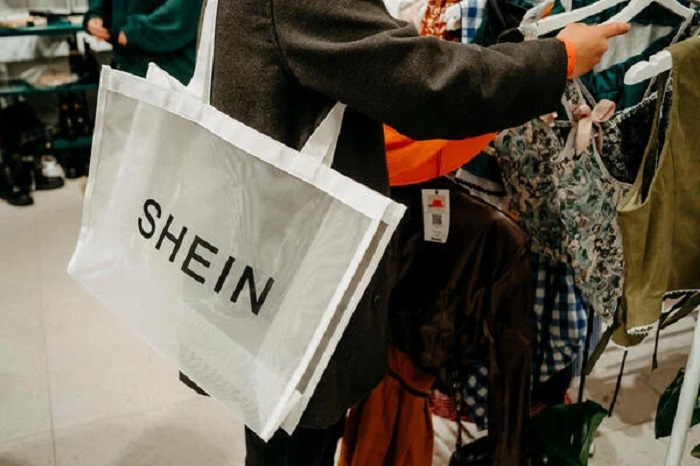
Campaigners Call for Urgent Action Against Shein’s Environmental and Human Rights Impact
Last updated on June 12th, 2023 at 04:40 am
Campaigners pushing for swift action against Shein, the ultra-fast fashion giant, have started an initiative under the direction of the French political group Place Publique, citing worries over its adverse effects on the environment and human rights. Focusing on Shein’s use of polyester, made from processed oil and gas, the campaign draws attention to how it contributes to environmental catastrophes and the discharge of microplastic fibres into the oceans. The critics also contend that Shein encouraged excessive consumption, which harms the environment. This article examines the main problems brought up by the campaign and the urgent requirement for legislative and regulatory action to address them.
The Environmental Impact of Shein’s Ultra-Fast Fashion Model
Shein’s usage of polyester, a synthetic fabric made from refined oil and gas, is one of the main issues brought up by the campaign. Polyester production and disposal have a substantial negative impact on the environment. According to reports, synthetic clothing may cause contamination and harm to marine life by releasing microplastic fibres into the ocean. The protesters contend that Shein’s business model encourages excessive consumption, worsening the harmful effects on the environment given that the company adds up to 8,000 new items daily.
The Climate Crisis and Shein’s Contribution
The campaign claims that the fashion industry’s carbon footprint, which accounts for 2% of global greenhouse gas emissions, may rise to 26% by 2050 if the present fast fashion model, exemplified by Shein, continues unabatedly. This ominous forecast highlights the urgent need for action to regulate the fashion industry’s practices and promote sustainable alternatives. The initiative hopes to get support for legislative and regulatory measures to counteract the climate-destructive aspect of fast fashion by writing to Mr Bruno Le Maire, France’s Minister of the Economy.
Keep Reading
Human Rights Abuses and Exploitative Practices
In addition to its environmental effects, the campaign raises awareness of claims of human rights violations and precarious working conditions in Shein’s industrial system. According to NGOs and media investigations, a cotton crop collected by enslaved people from the Uyghur nation was found to have been used. These facts call into question Shein’s attempts to influencer-manipulate and create false claims on its website. The campaign emphasizes the need for rules to hold businesses accountable for their supply chain transparency and ethical practices and demands stern action against unethical practices.
The Role of Legislation and Regulation
Place Publique emphasizes the significance of legislative and regulatory measures to address the issues brought up by the campaign. One crucial step in limiting the destructive potential of organizations like Shein is the recent adoption of corporate duty of care legislation in the European Parliament. However, the campaigners emphasize the necessity of quick national action in France and call for creating a legislative and regulatory shield. By limiting advertising and marketing tactics that encourage excessive consumption, such policies should work to counteract “cultural obsolescence.” The campaign suggests delisting or blocking companies’ websites that release 1,000 or more new products per day.
The campaign led by Place Publique highlights the urgent need to address the environmental and human rights impact of Shein, the ultra-fast fashion giant. By emphasizing the company’s use of polyester, its contribution to the release of microplastic fibres, and the encouraged overconsumption, the campaigners draw attention to the detrimental environmental consequences. Furthermore, the allegations of human rights abuses and exploitative practices within Shein’s production system underscore the urgency of regulatory action. With the support of over 24,100 signatories and counting, the campaign aims to raise awareness and drive change to protect the environment, human rights, and the well-being of individuals affected by fast fashion.




